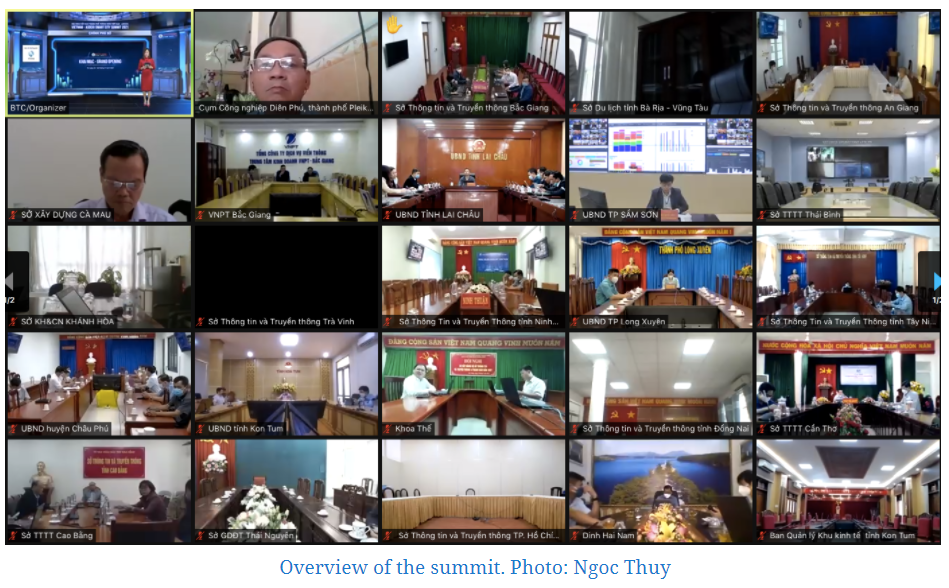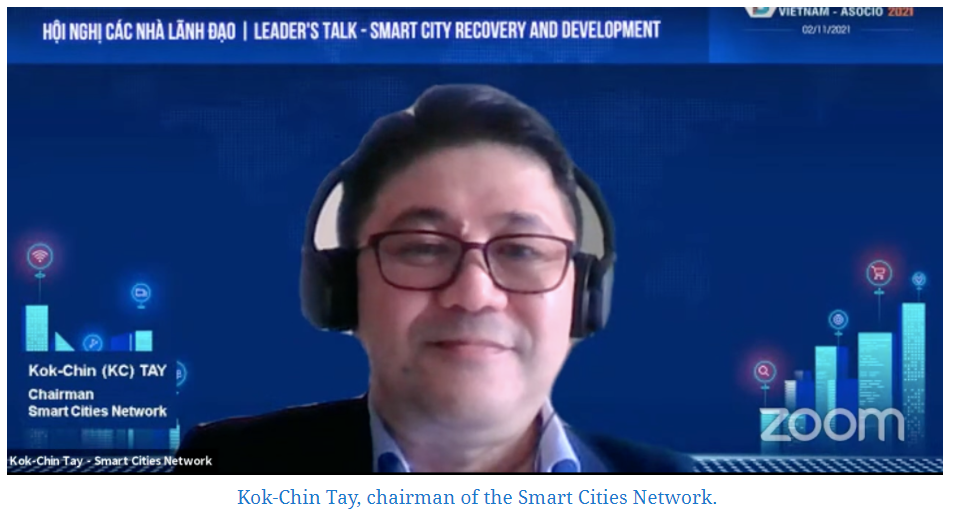Digital transformation to build smart cities in Vietnam
Along with digital transformation, smart city has become one of the global standards for development and a solution to optimize resources for sustainable growth.
As Vietnam is pushing for digital transformation at a national scale, smart city development is in fact a digitalization process within each city or urban area.
“The promotion of smart city should be in close association with the process of digitalization at city/provincial level.”
Vice Minister of Information and Communication Nguyen Huy Dung made the assessment at the Vietnam Smart City Summit 2021 jointly launched today [November 2] by the Vietnam Software & IT Services Association and the Asian-Oceanian Computing Industry Organization (ASOCIO).
According to Dung, the Prime Minister has issued Decision No.950 approving a strategy on sustainable smart city development in Vietnam for the 2018-2025 period, with a vision to 2030.
Meanwhile, Politburo’s Resolution.52 on active participation in Industry 4.0 also sets the goal for the country to have at least three smart cities in key economic zones in the North, South, and Central Vietnam.
“By 2030, Vietnam would have a network of smart cities in these areas and gradually connect with similar networks in Southeast Asia and the world,” he continued.
Dung noted the booming of new technologies from Industry 4.0 and rapid urbanization mean the smart city has now become an inevitable trend and a key driving force for countries around the world in socio-economic development.
“Cities are turning to technologies to address the social issues that emerged during the urbanization process,” Dung said.
He said eventual goals for each city by pursuing the smart city model would be to improve people’s living standards; ensure effective urban management; protect the environment; enhance economic competitiveness; provide convenient public services, and maintain public order.
Dung pointed out a number of cities in Vietnam that have achieved positive results in promoting smart cities, such as Hue or Danang.
“The issue, however, remains a new one not only for Vietnam but also for countries that are ahead in this regard. As such we have to constantly review, discuss and exchange ideas with each other to find the optimal way,” he said.
On this issue, Dung noted in the Covid-19 pandemic, even cities seen as the world’s smartest have been unable to protect people’s lives from the infection.
“The pandemic leaves us with costly lessons on current shortcomings and what we should work on to promote the smart city in the future,” Dung noted.
Smart city to ensure a safe environment to live and grow
Echoing Dung’s view, ASOCIO Chairman David Wong stressed the significance of smart cities given the fact that nearly half of the world’s population are living in cities, and by 2050, every seven in 10 people are expected to live in urban areas.
While only accounting for 2% of the world’s areas, major cities account for 70% of carbon emission and 60-80% of energy consumption, he said.
Wong noted the rapid urbanization is posing huge challenges for the world, such as social inequality, traffic congestion, or environmental pollution.
The question, Wong said, is how cities can improve resilience against future pandemics similar to Covid-19 that has persisted for nearly two years.
Chairman of VINASA Nguyen Van Khoa added the development of the smart city has fast become an urgent need for countries around the world, with the Covid-19 pandemic serving as the main catalyst to accelerate such a process.
“Along with digital transformation, smart city has become one of the main standards for development and a solution for the modern world to optimize resources for sustainable development, in turn providing a safe and convenient environment for the people towards prosperity,” Khoa concluded.
|
|
Source: http://hanoitimes.vn/digital-transformation-to-build-smart-cities-in-vietnam-319150.html


 Thailand
Thailand





